
We are a team of interdisciplinary researchers and community members across Florida State University (FSU) and community partner sites.
We are committed to improving the quality of and access to healthcare for everyone. Economic stability, education, health literacy, environmental conditions and an aging population all contribute to higher use of health care services and a greater need for family and professional caregivers.
It also puts the spotlight on taking a lifespan approach to healthy aging. Improving SDOH for people of all ages — with different backgrounds and abilities — can positively affect health and well-being. Public health organizations, health care providers, policymakers, and partners in the public and private sector all play a role in achieving that goal.
The goal of our project is to look at new ways to improve access and quality of health care, including behavioral health. We are especially focused on improving policies and practices aimed at eliminating health disparities. We believe in creating an innovative approach to reduce and eliminate health disparities and improve health outcomes.
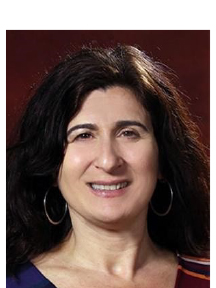
Dr. Sylvie Naar is a Distinguished Endowed Professor at the Florida State University College of Medicine's Department of Behavioral Sciences and Social Medicine. She is also the Director of the Center for Translational Behavioral Science and the Director of the University's KL2 program. She is a clinical researcher with more than two decades of studies across the spectrum of intervention research from early trials translating basic behavioral science into new interventions, to randomized clinical trials, to comparative effectiveness, to implementation.
Dr. Naar has held a multitude of positions and honors throughout her impressive career and has been funded by the National Institutes of Health for a variety of projects related to adolescent health. She completed her Bachelors degree at the University of Michigan, her Masters and PhD in Clinical Psychology at the University of Colorado in Boulder CO, and completed a Residency and Fellowship in Pediatric Psychology at Wayne State University.
RESEARCH INTERESTS: Adolescents, Emerging Adults, Health Management and Stress Interventions

Heather A. Flynn, Ph.D. is a clinical psychologist, Professor and Chair at the Florida State University (FSU), College of Medicine in the Department of Behavioral Sciences and Social Medicine. She is the Director of the FSU Center for Behavioral Health Integration. Dr. Flynn’s research is focused on improved identification and treatment of behavioral health disorders in women, especially around the time of childbearing. Her studies are specifically aimed at developing and testing psychotherapeutic treatments for depression and co-occurring behavioral risk issues in medical and community settings. Dr. Flynn is also conducting projects focused on advancing the field both nationally and in the State of Florida through facilitating collaborative research networks to enhance synergy among experts in depression and related chronic illnesses. She is the Co-Chair of the Florida Maternal Mental Health Collaborative (www.flmomsmatter.org), and the Chair of the Women & Mood Disorders Task Group within the National Network of Depression Centers (www.nndc.org). Dr. Flynn is a member of the Motivational Interviewing Network of Trainers (MINT) and has been conducting training and supervision in MI with various settings and professionals for over 15 years. She is also a trainer and supervisor in other behavioral interventions such as Interpersonal Psychotherapy for Depression and serves on the Executive Board of the International Society for Interpersonal Psychotherapy.
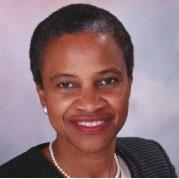
A native of Indiana, Ralston received the B.S. degree from Ball State University and the M.Ed. and Ph.D. degrees from the University of Illinois. Her previous positions include professor, College of Human Sciences, Iowa State University and professor and head,Department of Consumer Studies,University of Massachusetts-Amherst. The author of over 60 refereed articles, abstracts, book chapters and reviews, Ralston's major scholarly work has focused on program development, including the development of community-based programs and higher education programs.
Research Interests:
- Community-based programs for older adults, health related outcomes, program development in higher education.
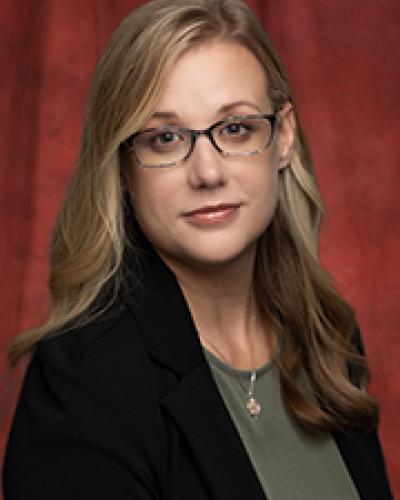
Sara Green is the Assistant Director at the Center for Translational Behavioral Science and the faculty lead of CTBScience Research Development Core, overseeing bioethical and regulatory aspects of behavioral and clinical trial research and management of large-scale clinical trial studies. Sara has received certification in Ethical and Regulatory Aspects of Clinical Trial Research from the National Institutes of Health, and is pursuing a Graduate Certificate from Florida State University in Bioethics. Sara serves as a Co-Investigator on multiple NIH funded projects, including co-leading the SHARE Program's Community Engagement Core. Sara also contributes to multiple other federally funded projects, providing bioethical and regulatory expertise. Sara is also the Director of the FLEX Peer Support Program that provides peer support and resource navigation to adolescents and young adults in North Florida living with or at-risk for chronic disease.
Sara has served as the protocol co-chair of the Adolescent Trials Network "Ethical Issues in Engaging Lost to Follow Up Youth in HIV Care and Research" study (ATN164), and protocol co-chair of the Adolescent Trials Network "Innovations in Big Data and Implementation Science to End the Youth HIV Epidemic in Florida" (ATN165). Sara also served as a member of the Adolescent Trials Network's Bioethics working group. She is also an active community volunteer and advocate for issues surrounding Type 1 Diabetes. ORCID: https://orcid.org/0000-0002-6055-4641
Education: Bachelor of Science, Sociology and Public Administration; Florida State University
Master of Social Work, Advanced Clinical Practice; Saint Leo University
Research Interests: Bioethics, chronic disease, HIV, Type 1 Diabetes, Health equity, Adverse Childhood Experiences (ACES) and health outcomes across the life-span

Christopher Schatschneider, Professor of Psychology at Florida State University, is an Associate Director of the Quantitative Methodology and Innovative Division of FCRR. Dr. Schatschneider is also an Associate Director of FCRR. Dr. Schatschneider has a strong interest in research design, measurement, and statistical methodology. He is interested in educational psychology, learning disabilities, quantitative methods, and research design, and reading and language comprehension.
Kristina Feliciano, MSW Community Intervention Specialist Ms. Feliciano is a two-time graduate of Florida State University with a B.S. in Criminology and master’s degree in Social Work. She has over 3 years of experience in Motivational Interviewing, and has applied her skills across several populations, including those who are justice-involved, managing substance use disorders, individuals living with chronic conditions & more.
She has also delivered multiple MI trainings for providers, clinicians, and community workers. As the oldest of 7 and a first-generation college student, Kristina is passionate about leadership and is dedicated to working with various different populations, striving to provide wrap-around support and drive meaningful change. Kristina also hopes to become a MINT trainer in the near future.
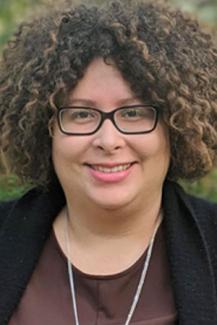
Dr. Laura Reid-Marks Co-Investigator Dr. Marks is an associate professor at the Center for Translational Behavioral Science (CTBS) in the Department of Behavioral Sciences and Social Medicine (BSSM), College of Medicine, Florida State University. Her program of research is focused on stressors that include microaggressions, sizeism, etc. and its effects on the lives of adults from most affected populations. Her recent research projects have focused on two primary strands: (a) health disparities (mental health, and health behaviors) and the development of tailored interventions, and (b) career and professional development issues. She is director of the Global Research on Working To ameliorate Health disparities (G.R.O.W.T.H.) Research Lab.
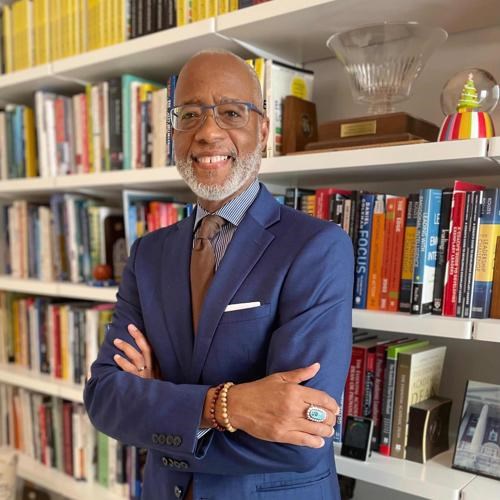
IN MEMORY OF DR. NORMAN B. ANDERSON
Dr. Anderson was a beloved colleague, he served as a Multiple Principal Investigator (MPI) for the Transformative Health Justice Collaborative and Professor of Social Work at Florida State University. Dr. Anderson created and directed the FSU Faculty Leadership Development Program, designed to offer leadership training to faculty across the university at different stages of their professional journeys. For his research, service, and leadership, he received significant awards from scientific societies and universities, and was the recipient of four honorary doctorate degrees. He will be greatly missed.
